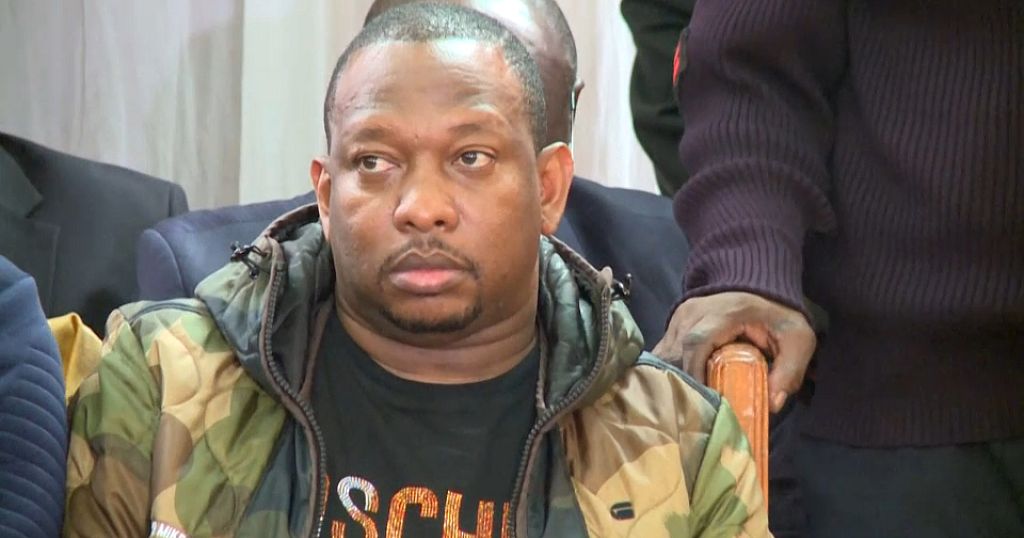Stakeholders in the mental health field recently participated in a public forum on amendment of the Mental Health Act 1983.
This outdated law fails to meet the standards set by the Convention on the Rights of Persons with Disabilities (CRPD) in relation to the right to health. It permits non-consensual treatment and detention in mental health facilities.
But what is the place of a mental health law? Will the new law deviate in principle from its predecessor, and will it work towards upholding the rights of users of mental health services?
Inasmuch as mental health laws might exist to regulate service delivery in mental healthcare and even regulating mental health facilities, primarily, they also control and regulate the lives and bodies of persons with psychosocial disabilities. This should not be so.
A mental health law, by essence, departs from the general health laws regulating the health system. It introduces an exception to the principle of informed consent and creates a separate and lower standard that allows for forced admission and treatment only for persons with mental health conditions.
Particularly after the adoption of the CRPD, this is a problematic position that should be scrutinised with care. It raises the question of whether a mental health law can uphold rights.
Are there parts which are better lifted out and included in general laws, in order to align between the standards applying to the general population and to people with disabilities? Does determination of general capacity belong in a mental health law?
Can the establishment of medical services be incorporated into a law applying to the general health system? Would not respecting rights and preventing discrimination belong better in the general equality law applying to persons with disabilities?
Should decriminalisation of suicide be addressed in this law or the Criminal Procedure Code? What is the bare minimum that needs to remain?
These probing questions must be asked to ensure that stakeholders are aware of, and attentive to, the changes mandated by the CRPD and make every attempt at approaching the issue from the perspective of the convention’s core principles.
These include principles of non-discrimination, respect for difference and acceptance of persons with disabilities as part of human diversity and humanity and, importantly, respect for inherent dignity and individual autonomy, including the freedom to make one’s choices.
The ongoing discussions on mental health laws and their place in society should also be preceded by an overview of other laws regulating the health system in order to gain an understanding of whether options exist for folding parts of the mental health laws into other laws.
Suffice it to say that the template of the mental health laws that exist do not embody the paradigm shift required by the CRPD.
Mental health laws, the ones that we have, curtail legal capacity of persons with mental health conditions with continued use of the ‘best interest’ provisions running throughout them.
Where, for example, in a mental health facility someone would suffer violations to their bodily and mental integrity but which would be justified to be carried on the ‘best interest of the patient’.
Our systems must be willing to embrace progressive changes in the field of mental health that seek to ensure that the person with a mental health issue is, above all, treated with dignity; that their voice counts; that they can be supported to exercise their legal capacity; and that they should not, and cannot, be detained in mental health facilities against their will.
Indeed, it has also been shown that coercion in mental health does not result in better outcomes for the user of the service. For example, how many of them understand about writing advance directives in efforts to ensure that, when they are in a crisis, their will and preferences will be respected?
How do we train practitioners and invest in workable de-escalation measures to avoid forced treatment?
How can we invest more in building networks of peers as there is also evidence to show that belonging to a peer group greatly reduces rates of admissions into facilities?
More of our energies should move into finding ways that ensure we uphold the human dignity of users of mental health services and persons with psychosocial disabilities.
We must be willing to invest in the knowledge and experiences of users of mental health services even as we think around solutions that eventually uphold the rights and dignity of all. If it means doing away with mental health laws, then that should be the case.
Mr Njenga, CEO at Users and Survivors of Psychiatry in Kenya, is an executive council member at the African Disability Forum. [email protected] Ms Ombati, a disability rights advocate and programs officer at Users and Survivors of Psychiatry in Kenya, is an International Disability Alliance fellow. [email protected]

 General News3 days ago
General News3 days ago
 General News4 days ago
General News4 days ago
 General News3 days ago
General News3 days ago
 General News2 days ago
General News2 days ago
 General News2 days ago
General News2 days ago
 General News1 day ago
General News1 day ago


